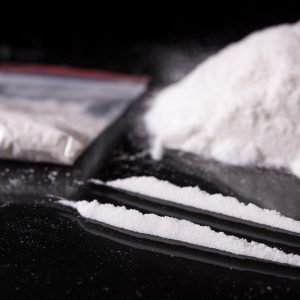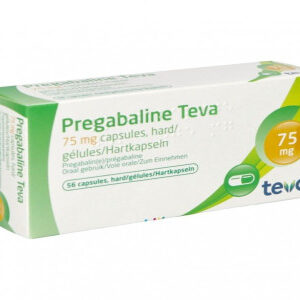Cocaïne: Understanding Its Effects, Risks, and Treatment Options
Cocaine is a powerful stimulant drug that has been widely recognized for its potent effects on the central nervous system. Derived from the leaves of the coca plant, primarily found in South America, cocaine is infamous for its ability to induce euphoria, heightened energy, and increased alertness. Although its use dates back to ancient civilizations, its current status as a recreational drug has made it a focus of public health concerns due to its highly addictive nature and severe health risks.
What Is Cocaine and How Is It Used?
Coc, commonly known as a stimulant, is available in two primary forms: powder cocaine (cocaine hydrochloride) and crack cocaine. Powder cocaine is typically snorted, while crack cocaine is smoked for a more intense and immediate high. Regardless of the form, cocaine works by affecting the brain’s dopamine system, leading to powerful feelings of euphoria and energy. This makes it a popular choice in social and party settings. However, the intense effects are short-lived, which often leads to users seeking repeated doses to maintain their high.
When people buy cocaine online or through illicit channels, they may be exposed to a range of unpredictable factors. The purity of cocaine can vary greatly, which increases the risk of harmful side effects and overdose. In addition to recreational use, cocaine is sometimes used in medical settings, though in limited applications and with strict regulation. In contrast, the widespread illicit use raises significant concerns for public health and safety.
The Effects of Cocaine Use
Coc produces rapid and intense effects on the body, affecting both the brain and central nervous system. The primary effects of cocaine use include:
- Euphoria: A sudden rush of intense pleasure, often described as a feeling of power and invincibility.
- Increased Energy and Alertness: Users feel more awake, alert, and energetic.
- Heightened Sociability: Coc can make people feel more talkative and confident in social situations.
- Physical Effects: Coc can raise heart rate, blood pressure, and body temperature, which contributes to its stimulant properties.
While these effects may seem appealing, the high is often followed by a rapid comedown, which can leave users feeling fatigued, anxious, or depressed. This leads many to use more cocaine in an attempt to prolong the euphoric feelings.
Health Risks of Cocaine Use
Despite the initial euphoric effects, cocaine is associated with serious and potentially fatal health risks, especially with frequent or high-dose use. Some of the most dangerous risks include:
- Addiction: Coc is highly addictive. As the body builds tolerance to the drug, users often need higher doses to achieve the same effects. This leads to a cycle of escalating use and dependence.
- Overdose: One of the most severe risks of cocaine use is overdose. Symptoms of overdose include seizures, heart attack, stroke, and respiratory failure, all of which can be fatal without prompt medical intervention.
- Mental Health Issues: Prolonged cocaine use can lead to anxiety, paranoia, hallucinations, and even psychosis. These psychological effects can have lasting impacts on a user’s mental well-being.
- Cardiovascular Problems: Coc use can cause heart attacks, arrhythmias, and other cardiovascular issues. It increases the risk of blood clots and can cause long-term damage to the heart and arteries.
- Physical Damage: Chronic cocaine use can damage vital organs, including the liver, kidneys, and lungs. Additionally, those who inject cocaine risk developing collapsed veins and infections from contaminated needles.
Legal Implications of Coc Use
Cocaine is classified as a Schedule II controlled substance in many countries, including the United States, meaning it has a high potential for abuse and no accepted medical use outside of very specific situations. Possessing, selling, or using cocaine illegally can result in serious legal consequences, including arrest, imprisonment, and fines.
For individuals who purchase cocaine online or through illegal means, the legal risks are significant. It’s important to understand the laws in your country or region regarding controlled substances and the potential consequences of engaging in illegal drug transactions.
Treatment Options for Coke Addiction
Coc addiction is a serious condition that requires professional treatment and support. The path to recovery can be difficult, but with the right care and commitment, overcoming addiction is possible. Some common treatment options for cocaine addiction include:
- Medication-Assisted Treatment (MAT): Although there is no FDA-approved medication specifically for coc addiction, certain medications can help manage withdrawal symptoms and cravings. MAT is typically used in combination with therapy and counseling.
- Therapy and Counseling: Behavioral therapies, such as Cognitive Behavioral Therapy (CBT), help individuals identify and change harmful behaviors associated with addiction. Therapy also helps individuals cope with the underlying psychological issues that may have contributed to their drug use.
- Support Groups: Support from groups like Narcotics Anonymous (NA) provides a sense of community and encouragement during recovery. These groups help individuals share experiences and learn from others who have gone through similar struggles.
- Inpatient and Outpatient Rehabilitation: Structured programs, both inpatient and outpatient, provide individuals with the tools and support they need to recover. These programs offer a combination of therapy, education, and lifestyle changes.
Why Seek Help?
Coke addiction is treatable, but seeking help early is crucial. If you or someone you know is struggling with coc use, reaching out to a healthcare provider or addiction specialist can make a significant difference in the recovery process. Support is available, and professional treatment can help individuals regain control over their lives.
Conclusion
Coke is a dangerous and highly addictive drug that poses significant health risks. Its euphoric effects can lead to temporary feelings of energy and excitement, but the long-term consequences are severe. If you’re struggling with cocaine addiction, remember that recovery is possible. By seeking professional treatment and support, individuals can overcome addiction and lead healthier, more fulfilling lives.
If you or a loved one is dealing with cocaine addiction, it is crucial to act now and explore available treatment options. Take the first step toward recovery today.





Kai (geverifieerde eigenaar) –
Very well worth the money.
Janssen –
“They were timely in their response and me feel welcomed and cared for. “